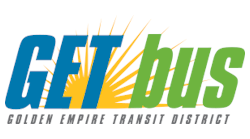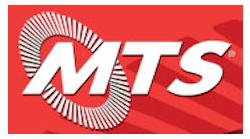California Transit Association unveils 2023-2028 strategic plan
The California Transit Association has unveiled its 2023-2028 strategic plan, which charts a path forward for the industry that is increasingly rider- and worker-focused, sustainable, and equitable. As part of a year-long effort directed by the Association's Executive Committee – led by Chair Karen King, CEO of Golden Empire Transit District and Vice Chair Sharon Cooney, CEO of San Diego Metropolitan Transit System – the association’s new strategic plan serves as a blueprint for meeting the changing needs of the public transit industry and the communities, workers and families across California it serves.
“The association’s 2023-2028 strategic plan comes at a moment when our industry faces serious existential threats—slow ridership recovery, a fiscal cliff and a widening workforce gap,” King said. “At the same time, we are committed to playing active roles in broader societal efforts to address climate change and structural inequality. In addition to refining our vision, mission and values, this strategic plan for the next five years identifies objectives and performance measures to advance our longstanding goals: Advocating for critical funding and policy at the state and federal levels; providing the best service to our members; maintaining the strongest possible Association and building a more diverse, equitable, inclusive and accessible public transit industry.”
The strategic plan prioritizes and builds on the organization’s key successes achieved in recent years, including advancing policy, regulatory and funding measures that are supporting the industry’s transition to zero-emission vehicles (ZEV).
“Under the last strategic plan, the Association helped deliver major legislative, regulatory and budgetary victories that are helping to transform our industry. These victories include, among other things, the historic passage of Senate Bill 1, providing approximately $1 billion in new funding for capital and operations to California’s transit agencies annually, the negotiation and successful implementation of the Innovative Clean Transit regulation, which will facilitate the transition of all transit buses in California to zero-emission technologies by 2040; the passage of numerous sponsored bills and the enactment of one-time COVID-19 relief measures, including new federal funding and state-level statutory and regulatory relief,” said Executive Director Michael Pimentel. “As we look ahead, the challenges and opportunities are significant. Our goal is to make certain there is ongoing, sustainable funding and the workforce that allows agencies not only to preserve, maintain and expand current services in the face of immediate post-pandemic challenges but support the transformation of our industry into one that is cleaner and more adaptable. Long-term viability is core to this plan. Additionally, for fleets to be 100 percent zero-emission by 2040, the ZEV transition will require more funding for vehicles, infrastructure and ongoing workforce training.”
The refreshed strategic plan also expands efforts within the Association and at member agencies to build a more diverse, equitable, inclusive and accessible public transit industry. As the Association examined in its 2021 report, Actions for a More Inclusive, Diverse, and Equitable Association, transportation infrastructure and mobility services have a history that includes discrimination, displacement, the dividing of communities and the unequal distribution of benefits and impacts.
“The 2023-2028 strategic plan formalizes — for the first time — our Association’s commitment to increasing equity, inclusion and access in our strategic planning," Cooney said. "The results of this increased focus will be visible in the policy positions we take and the educational content we deliver to members. We’ll be partnering with racial and social justice and transportation equity organizations who are already leading in this work, as well as bolstering the work of the Association’s own Inclusion, Diversity, Equity and Access (IDEA) Task Force in developing best practices and equity assessment tools. Ultimately, we expect to see greater diversity across our Association and our industry — especially in leadership positions."
With a structured, guiding framework to ensure successful implementation of the strategic plan, which includes performance measures for tracking progress on goals and objectives, it will inform all aspects of the Association’s annual work program, budgeting and legislative agenda, guaranteeing the Association’s focus and resources remain directed at delivering on the public transit industry’s highest order priorities and objectives.



